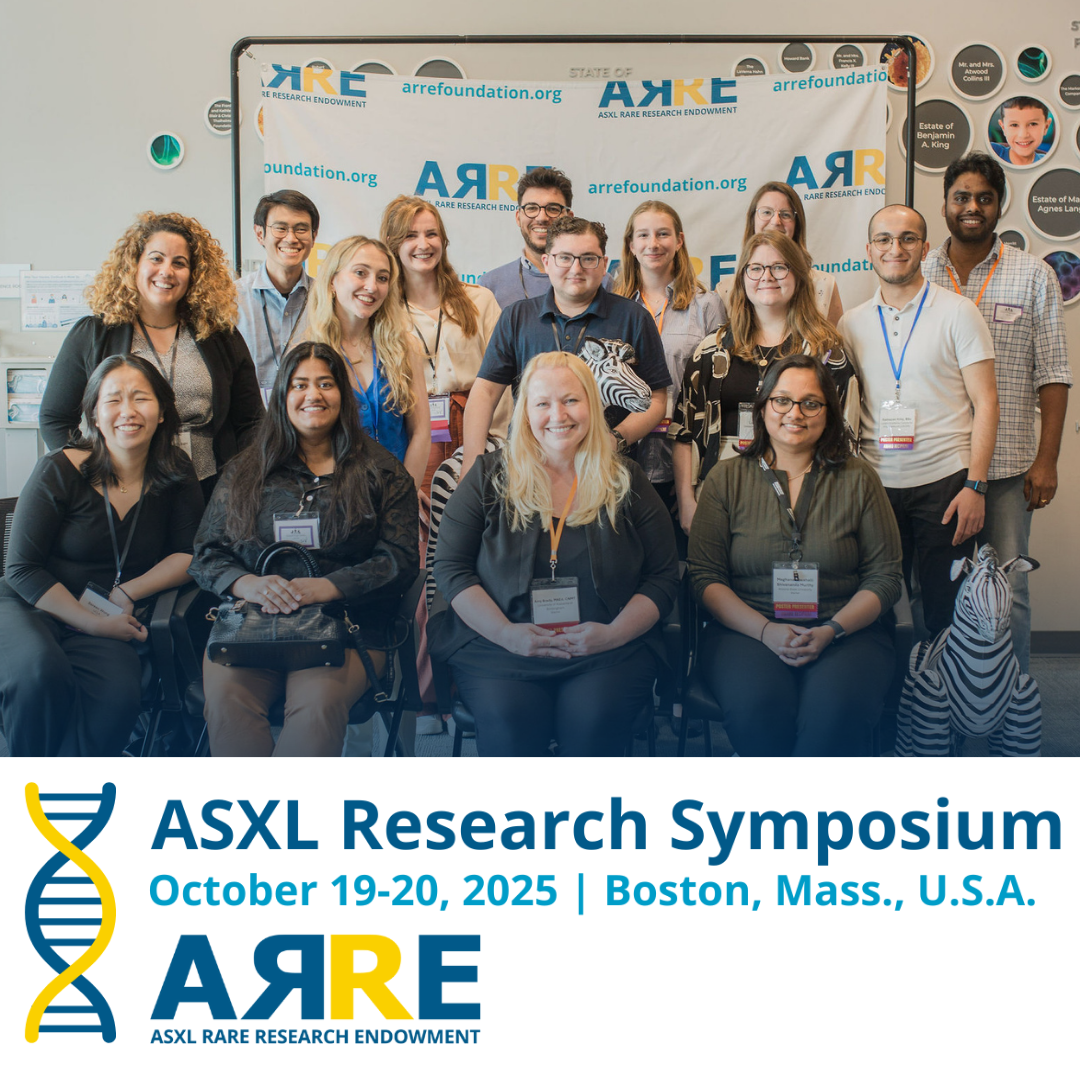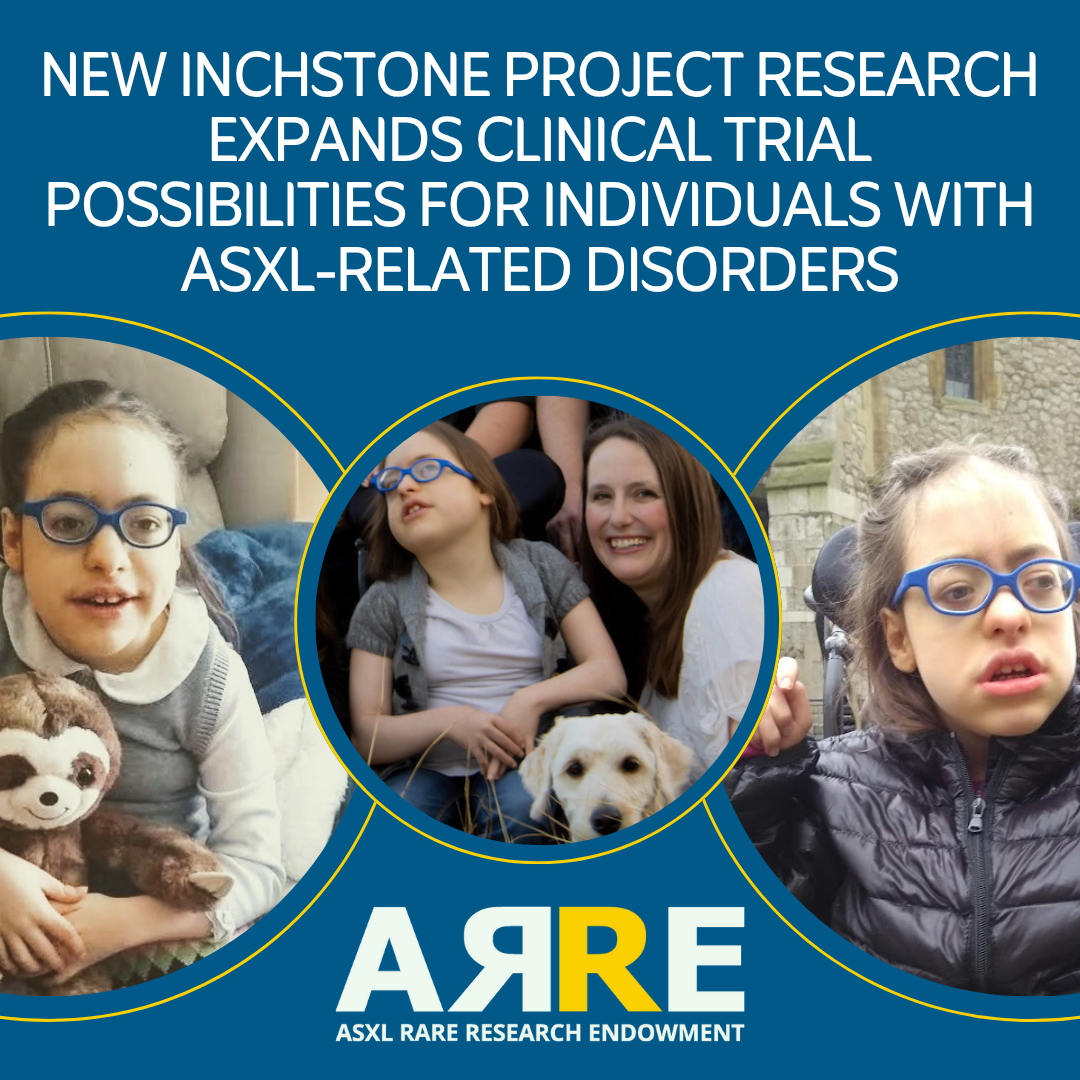
What to know about the 2025 ASXL Research Symposium
From Sunday, October 19 to Monday, October 20, 2025, the ASXL Rare Research Endowment (ARRE) Foundation will host the ASXL Research Symposium at Simmons University in Boston, Massachusetts.

Love, loss, and the road ahead
After Frank and Mikaila Schmidt’s son Hudson passed away, they looked for ways to carry his memory forward and support other families facing the same rare diagnosis. Out of that desire to make a difference, Hudson’s Handlebar Heroes was born—a 200-mile cycling fundraiser. With support from friends, family, and their wider community, the Schmidts raised more than $19,000 for ASXL-related disorder research.

ARRE Foundation expands scientific leadership with new MSAB members
Dr. Rob Illingworth and Dr. Valerie Arboleda join the ARRE Foundation’s Medical and Scientific Advisory board. Their expertise brings strength to our translational science efforts to help bridge foundational scientific discovery with future therapeutic possibilities.

Join the movement: Genetic Testing Action Day—July 25, 2025
Many developmental delays, medical complexities, and neurological differences have a genetic cause. Yet too often, families are unaware that genetic testing is available—or don’t know how to access it. Genetic Testing Action Day on July 25 encourages families to talk with their child’s doctor about genetic testing.

New Inchstone Project research expands clinical trial possibilities for individuals with ASXL-related disorders
A new paper published by the Inchstone Project marks a turning point in how future clinical trials can better reflect—and include—the most severely affected individuals with developmental and neurogenetic disorders, including ASXL-related disorders.

Representing our ASXL community at Family Advocacy Day 2025
ARRE Foundation Founder and Chair, Laura Badmaev, and her son Alex—who has Bohring-Opitz Syndrome (ASXL1)—will travel to Washington, D.C. this June to represent the ASXL community at Family Advocacy Day.

What is the ASXL Census—and how can it help us get closer to treatments?
We’re launching something simple but powerful: the ASXL Census. If you’ve never heard the word “census” outside of a government survey, you’re not alone. But in rare disease communities like ours, a census can be one of the most important tools we have to drive change. Learn more about what the ASXL Census is, what it isn’t, and how it can drive research forward.

Why biomarkers matter—and what they mean for ASXL-related disorder research
For individuals with ASXL-related disorders, identifying reliable biomarkers is key to preparing for future clinical trials. But what is a biomarker? We answer this question in our latest blog post and share two exciting studies that are helping move research forward.

A breakthrough in personalized gene editing—and what it means for ASXL-related disorders
The New York Times recently reported a historic medical breakthrough: baby KJ became the first person in the world to receive a custom gene-editing treatment. This article breaks down what this means (and doesn’t mean yet) for the ASXL community.

Dr. Karen Ho visits UCLA’s Arboleda Lab and REACH Biobank—what it means for our ASXL community
Chief Scientific Officer Karen S. Ho, PhD visited Valerie Arboleda, MD, PhD’s lab and the REACH Biobank at the University of California, Los Angeles (UCLA) last week, marking another important step in deepening our scientific partnerships and advancing research for individuals with ASXL-related disorders.

Travel tips and tricks by ASXL families
Traveling with a medically complex loved one can be stressful, with so much to plan and pack. To help, we've created a resource filled with real tips and advice from families who’ve done it—covering everything from packing checklists and medication strategies to navigating airports and finding accessible lodging. It also reminds families to go slow, build in extra time, and expect the unexpected. Whether it’s your first trip or your fifth, this guide is here to ease the worry so you can focus more on making meaningful memories.

Partnering for progress at the Gatlinburg Conference
Earlier this month, the ASXL Rare Research Endowment (ARRE) Foundation was honored to participate in the 2025 Gatlinburg Conference on Research and Theory in Intellectual and Developmental Disabilities in a symposium titled Multi-Method, Multi-Stakeholder Approaches to Advancing Research and Clinical Trial Readiness in Rare Neurogenetic Conditions.

ASXL Rare Research Endowment Foundation appoints Dr. Karen S. Ho as Chief Scientific Officer
The ARRE Foundation is proud to announce Karen S. Ho, PhD, MSc, as Chief Scientific Officer. This milestone reflects the ARRE Foundation’s continued growth and our commitment to driving meaningful scientific progress for ASXL-related disorders.

ASXL research and healthcare infrastructure: Context for understanding significant changes to U.S. federal policies
Significant and abrupt changes to the research and healthcare infrastructure in the United States by the Trump administration over the last month have caused concern for many advocates in the rare disease community. The ARRE Foundation seeks to help educate our community about the ASXL research and healthcare infrastructure as context for understanding how these changes could impact medical care and research for ASXL-related disorders now and in the future.

Cory Rillahan, MD, PhD joins Medical and Scientific Advisory Board
The ARRE Foundation welcomes Dr. Cory Rillahan, a pediatric oncologist at Dana Farber Cancer Institute and Boston Children’s Hospital, to its Medical and Scientific Advisory Board. As both a physician-scientist specializing in pediatric leukemias and a parent of a child with Bainbridge-Ropers Syndrome, Dr. Rillahan brings invaluable expertise and passion to our mission of advancing research and support for ASXL-related disorders.

Samantha Regan, PhD presented with a $20,000 research grant from Uplifting Athletes and the ARRE Foundation
Dr. Samantha Regan of the University of Michigan has been awarded a $20,000 research grant as part of Uplifting Athletes’ 2025 Young Investigator Draft Class, co-funded by the ARRE Foundation. Her work on the ASXL3 gene aims to advance the understanding of Bainbridge-Ropers Syndrome, bringing the community closer to pre-clinical tools and potential therapeutic targets.

ARRE Foundation announces $545,000 investment in research for ASXL-related disorders
The ARRE Foundation is excited to announce a $545,000 research investment in 2025, bringing our total commitment to ASXL-related disorders to $1.3 million since 2018. This funding will support clinical studies, expand the ASXL Natural History Study and Biobank, and advance research into potential treatments, including a drug screening program using FDA-approved drugs. Together with the ASXL family community and dedicated researchers, we’re driving progress toward better care and therapies for Bohring-Opitz, Shashi-Pena, and Bainbridge-Ropers syndromes.

Case reports document successful use of pregabalin (Lyrica) to treat challenges related to Bainbridge-Ropers Syndrome
Two recent case reports document the successful use of pregabalin (Lyrica) to treat challenges related to Bainbridge-Ropers Syndrome (ASXL3-related disorder), including extreme behaviors and suspected pain episodes.

ARRE Foundation celebrates milestone publication for Shashi-Pena Syndrome (ASXL2)
We are excited to announce a new publication on Shashi-Pena Syndrome, a collaborative effort between the ARRE Foundation, the family community, and medical experts. This paper, published as a new chapter in GeneReviews, is the first comprehensive update on Shashi-Pena Syndrome since 2016. It expands the medical understanding of the syndrome’s key features, analyzing data from 23 individuals.

Project update: “Defining and prioritizing research questions and outcome measures in ASXL-related disorders”
The ARRE Foundation is making significant progress on our PCORI-funded project to develop and prioritize research questions shaped by the voices of families living with ASXL-related disorders.
